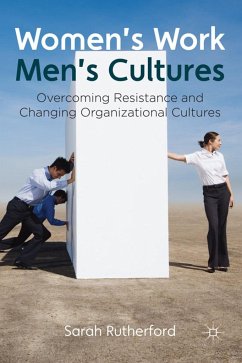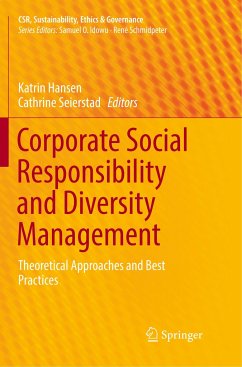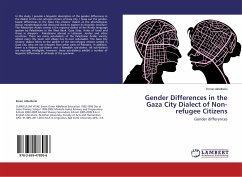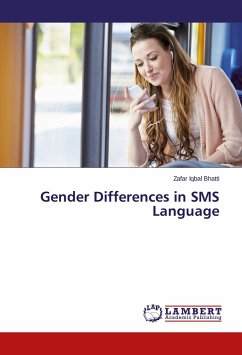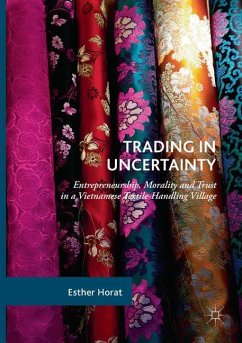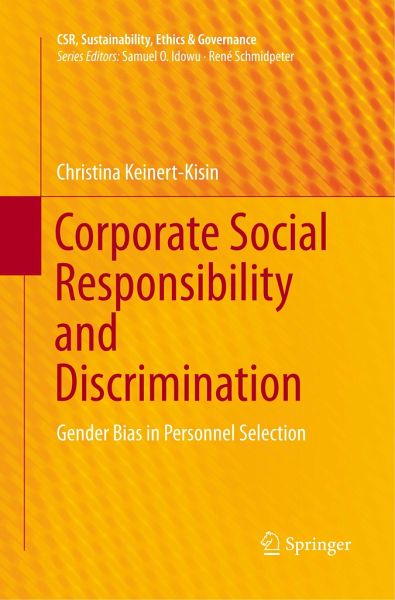
Corporate Social Responsibility and Discrimination
Gender Bias in Personnel Selection
Versandkostenfrei!
Versandfertig in 6-10 Tagen
76,99 €
inkl. MwSt.
Weitere Ausgaben:

PAYBACK Punkte
38 °P sammeln!
Thisbook presents and deconstructs the existing explanations for the differentialcareer development of qualified men and women. It reframes the problem ofdiscrimination in the workplace as a matter of organizational ethics, socialresponsibility and compliance with existing equal opportunity laws. Sensitivepoints are identified where social biases, decision-makers' individual economicinterests and shortcomings of organizational incentive policies may lead todiscrimination against qualified women. The ideas put forward are empiricallytested in an original laboratory experiment that examines pers...
Thisbook presents and deconstructs the existing explanations for the differentialcareer development of qualified men and women. It reframes the problem ofdiscrimination in the workplace as a matter of organizational ethics, socialresponsibility and compliance with existing equal opportunity laws. Sensitivepoints are identified where social biases, decision-makers' individual economicinterests and shortcomings of organizational incentive policies may lead todiscrimination against qualified women. The ideas put forward are empiricallytested in an original laboratory experiment that examines personnel selectionin the male-dominated field of science and technology. It contrasts theselection of applicants with gendered and gender-blind applications availableto subjects under controlled conditions. 30% of participants were high-leveldecision-makers, which is unprecedented in this field of research. The results,highly relevant for organizational practice, are explained and discussed indetail.



